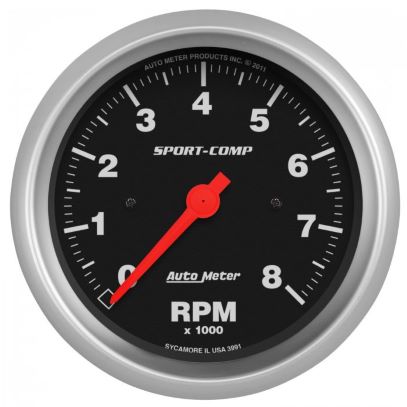Tachometer Essential: Everything You Need to Know for Accurate Readings
Tachometer Essential: Everything You Need to Know for Accurate Readings
Blog Article
Key Reasons Why Having a Tachometer Is Important for Maintaining Engine Health and Performance
In the world of auto maintenance, the value of a tachometer can not be overemphasized - tachometer. This simple yet crucial instrument plays a pivotal duty in the upkeep of an engine's health and wellness and effectiveness. By offering real-time data on engine speed and RPM degrees, a tachometer offers important understandings that straight influence the efficiency and durability of the engine. From protecting against over-revving to optimizing gas consumption, the applications of a tachometer are multifaceted and essential for any type of lorry owner or enthusiast. Why is this seemingly simple gadget so essential? Let's check out the vital factors behind its critical function in keeping engine wellness and performance.
Stopping Engine Over-Revving

To safeguard the engine from potential damage, it is imperative to implement procedures that avoid over-revving, a technique that can bring about pricey repair work and reduced engine lifespan. Over-revving happens when the engine's rotational rate surpasses the optimum limit set by the maker, triggering undue anxiety on internal parts such as pistons, shutoffs, and attaching rods. This excessive pressure can cause mechanical failings, including curved valves, damaged pistons, and even tragic engine failure.
One reliable step to stop over-revving is the installment of a rev limiter. A rev limiter is a tool that manages the maximum RPM (changes per min) of the engine by either cutting off fuel circulation or stimulate to the engine when the pre-set limitation is reached. Additionally, educating chauffeurs and drivers on the value of keeping track of engine RPM with the tachometer can aid protect against accidental over-revving. Routine maintenance checks to guarantee the engine is in optimum problem can likewise aid in protecting against over-revving events and extending the engine's life expectancy. By embracing these safety nets, the danger of engine damage due to over-revving can be significantly lowered.
Optimizing Fuel Usage
Efficient gas intake plays a critical duty in optimizing the efficiency and sustainability of an engine. tachometer. Optimizing fuel usage not only assists in decreasing functional costs yet likewise decreases the environmental impact of automobile exhausts. By using a tachometer to keep an eye on engine rate and readjust driving habits appropriately, drivers can accomplish better gas performance
Preserving a constant pace and preventing sudden accelerations and decelerations can considerably improve fuel economy. Furthermore, appropriate gear choice based on the tachometer analyses makes sure that the engine runs within its optimum variety, causing a lot more efficient fuel burning.
Routinely keeping an eye on the tachometer can additionally aid determine any type of ineffectiveness or mechanical concerns that might be impacting fuel usage. A sudden boost in gas usage without a matching change in driving behaviors can suggest a trouble that needs focus.
Tracking Engine Wellness
Checking engine health is necessary for ensuring optimum efficiency and long life of the lorry. By using a tachometer to monitor engine speed, chauffeurs can find irregularities that might indicate possible concerns with the engine. A tachometer supplies real-time data on engine transformations per minute (RPM), permitting vehicle drivers to identify any type of uncommon spikes or decrease in RPM that might signify issues such as misfires, worn-out elements, or engine getting too hot.

On a regular basis keeping track of engine health through using page a tachometer makes it possible for vehicle drivers to resolve issues without delay before they escalate and trigger significant damage. Finding a reduction in RPM can indicate gas distribution problems or a clogged air filter, while an abrupt increase in RPM may aim to issues with the transmission or exhaust system. By staying alert and receptive to modifications in engine performance, motorists can protect against expensive repair services and make sure the total wellness and effectiveness of their car.
Extending Engine Life-span
Guaranteeing the long life of an engine calls for thorough maintenance practices and conscientious tracking of vital efficiency indicators. Prolonging an engine's life expectancy is critical for decreasing total lorry maintenance costs and staying clear of unexpected break downs. A tachometer plays a considerable function in this element by giving real-time information on engine rate, allowing motorists and technicians to make informed decisions to avoid too much wear and tear.

In addition, normal maintenance based on tachometer readings, such as great site timely oil modifications and stimulate plug replacements, can substantially add to expanding the engine's long life. Generally, incorporating a tachometer right into regular engine monitoring practices is vital for protecting the engine's health and wellness and efficiency over the long-term.
Saving Cash on Repairs
A tachometer helps in monitoring the engine's RPM (revolutions per min), allowing motorists to run within the recommended variety. By remaining within these optimum RPM levels, extreme stress on the engine can be stayed clear of, lowering the chance of pricey repair work due to exhausting the engine.
Furthermore, by utilizing the information from a tachometer to exercise smooth velocity and deceleration, vehicle drivers can prolong the lifespan of their vehicle's components, inevitably saving money on upkeep and replacements. Overall, the insights offered by a tachometer empower drivers to make educated decisions that can stop unnecessary deterioration on the engine, causing substantial price financial savings visit their website in the future.
Conclusion
In verdict, a tachometer plays a critical role in maintaining engine health and wellness and performance by avoiding over-revving, maximizing fuel consumption, keeping track of engine wellness, extending engine life expectancy, and conserving money on repairs. It is a vital device for making sure that the engine runs within secure restrictions and does at its ideal, inevitably adding to the durability and general performance of the automobile.
Report this page